TL;DR
- Procaine (often known by the older brand Novocain) is a prescription local anesthetic, not a dietary supplement. It’s not approved for boosting health or energy.
- The FDA ruled procaine-based “Gerovital H3” products unsafe and ineffective decades ago and blocked their import as drugs. No new high-quality evidence has changed that.
- Oral procaine breaks down quickly in the body, so it’s unlikely to “energize” you. Risks include allergic reactions, drug interactions, and heart or nervous system effects.
- If your goal is better daily energy, start with sleep, food, and check for deficiencies (iron, B12, thyroid). Use supplements with real evidence when needed.
- Safer, proven options: caffeine + L-theanine, creatine for physical fatigue, iron or B12 only if deficient, rhodiola for mild stress fatigue, CoQ10 for specific cases. Work with a clinician.
What You Came For: Is Procaine a Must-Have Supplement for Energy?
The short answer: no. Procaine is a local anesthetic doctors inject to numb tissue during procedures. It’s not a vitamin, mineral, herb, or nutrient. In the U.S. and the EU, regulators classify procaine as a medicinal anesthetic. It’s prescription-only for medical use, not a lawful dietary supplement sold for energy or longevity.
So where does the “must-have supplement” buzz come from? Mostly from old anti-aging claims tied to a formula called Gerovital H3 (GH3), popular in the 1960s-1980s. GH3 contained procaine and was marketed for mood, memory, and vitality. The FDA reviewed those claims and, in a 1982 Federal Register ruling, concluded GH3 was an unapproved new drug-not proven safe or effective-and blocked its importation. European agencies treat procaine as an anesthetic as well. That status hasn’t changed in 2025.
If you’ve seen procaine sold online as a “dietary supplement,” that’s a red flag. In the United States, companies can’t legally market procaine as a supplement ingredient for energy or anti-aging. Some sites use evasive language, offshore shipping, or cosmetic labels to skirt rules. That doesn’t make it safe or legit.
Let’s anchor expectations. If you want steady energy, you’re probably trying to: 1) find out what procaine really is; 2) see if it works for energy; 3) check safety and legality; 4) understand better, evidence-backed options; and 5) walk away with a step-by-step plan that won’t waste your money.
Evidence Check: Does Procaine Boost Health or Energy?
Mechanism first. Procaine is an ester anesthetic. It gets broken down quickly by enzymes (plasma pseudocholinesterases) into metabolites like PABA. That fast breakdown is why dentists inject it locally-so it acts where it’s needed and doesn’t last long in your whole system. When taken by mouth, first-pass metabolism strips away most of it before it can do much. That’s the opposite of what you’d want from an energy supplement.
Claims you might see online: “procaine enhances circulation,” “improves neurotransmitters,” “anti-aging,” “energizing.” Here’s what we actually know:
- High-quality randomized trials supporting sustained energy, mood, or anti-aging benefits from oral procaine are lacking. Reviews over the years haven’t shown consistent, clinically meaningful effects.
- Regulators evaluated the procaine anti-aging claims decades ago and rejected them. No new rigorous evidence has flipped that decision. When bodies like the FDA, EMA, and national health agencies align, that’s telling.
- Bioavailability is poor. If little active drug reaches your system, expecting a reliable energy boost is unrealistic.
Could a few people feel something? Sure-placebo is powerful, and many factors influence daily energy: sleep, iron status, thyroid function, stress, caffeine use, blood sugar swings. But placebo is not a plan. If you’re chasing better energy, you need tools that actually move the needle for most people, or targeted fixes when labs flag a problem.
Safety and Legal Reality in 2025: What You Need to Know
Because procaine is a drug anesthetic, safety standards are different from supplements. Risks are real and documented in pharmacology texts and medical labeling.
Key safety points:
- Allergic reactions: Ester-type anesthetics (like procaine) have a higher rate of allergy than amide anesthetics (like lidocaine). Sometimes the issue is PABA (a metabolite). Reactions can include rashes, trouble breathing, or, rarely, anaphylaxis.
- Nervous system and heart effects: At higher systemic levels-most likely from injections or accidental overdoses-procaine can cause dizziness, ringing in ears, tremors, seizures, or heart rhythm problems. Oral “supplement” products can be unpredictable in content and absorption.
- Drug interactions: PABA can counteract sulfonamide antibiotics. If you’re on a sulfa drug, that matters. As with many anesthetics, systemic exposure may also interact with other CNS-active medicines.
- Special populations: Safety is not established for pregnancy or breastfeeding in any “supplement” context. People with pseudocholinesterase deficiency metabolize ester anesthetics poorly, which can increase toxicity risk.
- Regulatory status: In the U.S., procaine is a prescription anesthetic. The FDA has blocked procaine-containing Gerovital H3 as unsafe and ineffective. In the EU, it’s regulated as a medicinal product. It is not an approved dietary supplement ingredient for energy or anti-aging.
Bottom line: Treat procaine like what it is-a drug used by trained clinicians for numbing. It doesn’t belong in your daily wellness stack.
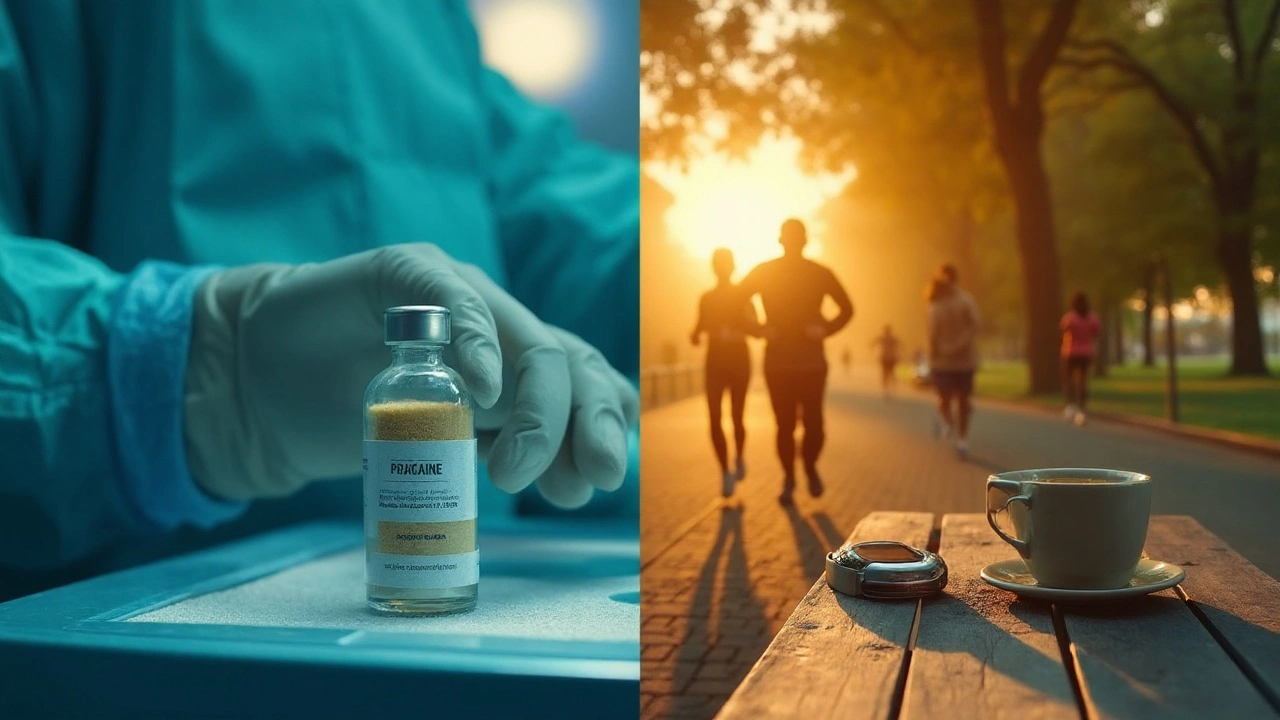
Smarter Paths to Real Energy: What Actually Works (And When)
If energy is the goal, start with a simple rule: identify what’s draining you, then match the fix to the cause. That might be sleep, hydration, iron/B12 deficiency, thyroid issues, cardiorespiratory fitness, or just inconsistent meals.
Your step-by-step plan:
- Check the “big three”: sleep, meals, movement.
- Sleep: 7-9 hours, consistent schedule, cut screens 60 minutes before bed. If you snore, wake unrefreshed, or have daytime sleepiness, talk to your clinician about sleep apnea assessment.
- Meals: include protein (20-30 g) and fiber each meal to steady blood sugar. Don’t skip breakfast if morning energy is an issue.
- Movement: even 10-20 minutes of brisk walking improves daytime alertness. Strength training 2-3 times weekly helps fight fatigue long-term.
- Run basic labs if fatigue lasts more than 2-4 weeks.
- Ask your clinician about: CBC, ferritin (not just hemoglobin), B12, TSH, CMP, and if relevant, vitamin D.
- Why ferritin matters: normal hemoglobin can mask low iron stores. Low ferritin is linked to fatigue even without anemia, especially in menstruating women.
- Pick targeted supplements (only if you have a reason).
- Iron: helpful if ferritin is low. Many people absorb iron better with alternate-day dosing (45-60 mg elemental iron). Take away from coffee/tea to improve absorption.
- B12: if levels are low or you’re vegan/vegetarian, older, or on metformin or acid reducers. Typical dose: 500-1000 mcg daily.
- Caffeine + L-theanine: reliable alertness with less jitter. 100-200 mg caffeine plus 100-200 mg L-theanine is a common combo. Keep total caffeine under 400 mg/day; under 200 mg/day if pregnant.
- Creatine monohydrate: 3-5 g daily supports high-intensity work and may help mental fatigue in some contexts. Safe for healthy kidneys; hydrate well.
- Rhodiola rosea (standardized): 200-400 mg may help stress-related fatigue within 1-2 weeks. Start low to avoid insomnia or jitters.
- CoQ10: 100-200 mg may help if you have heart failure or are on statins and experiencing fatigue; effects vary. It can reduce warfarin’s effect, so check with your clinician.
- Audit your stimulants and screens.
- If caffeine “does nothing,” you might be sleep-deprived. Protect 2-3 nights of solid sleep and reassess.
- Set a caffeine curfew 8 hours before bed. Blue light curfew 1 hour before bed.
- Re-test and adjust in 6-8 weeks.
- Energy changes lag. Don’t stack five new supplements at once-you won’t know what worked.
| Option | Best For | Evidence Snapshot | Typical Dose | Onset | Key Risks |
|---|---|---|---|---|---|
| Caffeine | Quick mental alertness | Consistent improvements in vigilance and reaction time (EFSA scientific opinion) | 100-200 mg as needed; <=400 mg/day | 15-45 minutes | Jitters, insomnia, anxiety; limit to <200 mg/day if pregnant |
| L-theanine (with caffeine) | Smoother focus | Helps reduce caffeine jitters in small trials | 100-200 mg with caffeine | 30-60 minutes | Drowsiness in some |
| Creatine monohydrate | Physical power, possible mental fatigue | Strong for high-intensity performance; emerging cognitive data | 3-5 g daily | Days to weeks | Water weight, GI upset if large single doses |
| Iron (if low ferritin) | Fatigue from iron deficiency | Improves fatigue in iron-deficient women even without anemia (meta-analyses) | 45-60 mg elemental, often on alternate days | 2-8 weeks | Constipation, nausea; don’t use without labs |
| Vitamin B12 | Low B12, vegans, older adults | Corrects deficiency; improves fatigue if low | 500-1000 mcg/day | 1-4 weeks | Very safe; check B12 if long-term fatigue |
| Rhodiola rosea | Stress-related fatigue | Modest benefits in small trials; quality varies | 200-400 mg (SHR-5 or standardized) | 1-2 weeks | Possible insomnia, agitation |
| CoQ10 | Statin-associated fatigue, heart failure | Helpful in some cardiovascular contexts | 100-200 mg/day with fat | 2-8 weeks | Can reduce warfarin effect |
Notice what’s not on that list: procaine. There’s just no reliable evidence it boosts energy, and the safety/legal issues make it a non-starter for wellness.
How to Vet Any “Must-Have Supplement” Claim (So You Don’t Get Burned)
Use this quick checklist before buying anything hyped online:
- Is the ingredient legally sold as a dietary supplement in your country? If the product dodges the question, skip it.
- Can you find randomized, placebo-controlled human trials that match the claim? Animal studies and testimonials don’t count.
- Is the mechanism plausible at the dose and route sold? If a drug gets destroyed in the gut, oral pills won’t mimic injections.
- Is the label transparent? You want exact amounts of each ingredient, not “proprietary blend.”
- Is there third-party testing (USP, NSF, Informed Choice)? This reduces the risk of contamination or under-dosing.
- Does the company avoid disease claims? If they promise to cure depression, heart disease, or aging, that’s a regulatory red flag.
- Does the story rely on a single guru, clinic, or decades-old study with no follow-up? Be skeptical.
Red flags specific to procaine marketing:
- Products labeled as “cosmetic” or “research chemical” but pitched for energy or anti-aging.
- References to “Gerovital H3” with claims that regulators “suppressed” a cure. The FDA’s 1982 ruling is public and straightforward: unproven and unsafe as marketed.
- Import-only sites with disclaimers like “not for human consumption” sitting next to glowing testimonials. That mismatch says everything.
For context, authorities you can trust on this topic include the U.S. Food and Drug Administration (for the GH3 ruling), the European Medicines Agency (classifying procaine as an anesthetic), and standard pharmacology references describing ester anesthetic metabolism and risks. You don’t need links to see the pattern: major regulators agree, and the science hasn’t shifted.
Your Action Plan: Safer Energy Gains, FAQs, and Troubleshooting
Here’s your practical playbook.
7-day reset for steadier energy:
- Day 1-2: Sleep triage. Set your bedtime and wake time, both within a 30-minute window. Dark, cool room. No screens for 60 minutes before bed.
- Day 3: Meal rhythm. Three balanced meals with protein, fiber, and healthy fats. Add a 10-minute walk after two meals.
- Day 4: Caffeine tune-up. Cap at 300-400 mg/day (less if sensitive). No caffeine after mid-afternoon.
- Day 5: Movement anchor. Commit to 20 minutes of brisk walking or light cardio. Add two 30-second stair sprints if you can.
- Day 6: Hydration and iron smart. 6-8 cups water. If you suspect iron issues (heavy periods, vegetarian diet, breathlessness), book labs for CBC and ferritin-don’t self-dose iron yet.
- Day 7: Targeted add-on. If labs are pending or normal, try a low-risk stack: caffeine 100 mg + L-theanine 200 mg in the morning; add creatine 3-5 g daily if physical fatigue is big.
Decision rules:
- If ferritin is low: work with your clinician on iron dosing and duration; reassess in 8-12 weeks.
- If B12 is low: start 500-1000 mcg/day; consider injections if you have absorption issues.
- If sleep is poor: prioritize sleep hygiene before piling on stimulants. Consider magnesium glycinate at night (if tolerated) and consistent wind-down routines.
- If stress is the main drain: trial rhodiola for 2 weeks; stop if you feel wired.
- If you’re on warfarin: avoid CoQ10 without medical guidance.
Mini‑FAQ
- Is procaine the same as Novocain? Novocain is a once-common brand name for procaine used by dentists. Either way, it’s a local anesthetic drug-not a supplement.
- Does procaine boost dopamine or “reset the brain”? Not in any reliable, supplement-style way. Oral procaine is rapidly broken down, so systemic effects are minimal and inconsistent.
- What about Gerovital H3? The FDA determined decades ago that GH3 products were unapproved drugs and not proven safe or effective for anti-aging or energy. That stance remains.
- Could topical procaine creams help energy? Topicals numb skin locally. They don’t raise whole-body energy.
- Is PABA (a metabolite of procaine) useful for energy? PABA is sometimes sold as a vitamin-like compound, but it’s not a proven energy booster and can interfere with sulfa antibiotics.
- Are there any legal, evidence-based “procaine alternatives” for energy? Yes-caffeine with L-theanine, creatine, iron or B12 when deficient, and rhodiola for stress fatigue. Match the tool to the cause.
Troubleshooting different scenarios:
- Busy parent, always tired: Protect sleep first. Try the caffeine + L-theanine combo in the morning only. Get ferritin checked if periods are heavy; iron deficiency is common and fixable.
- Shift worker: Use 100-200 mg caffeine early in the shift; avoid it within 8 hours of planned sleep. Consider blackout curtains, a white-noise machine, and melatonin 0.5-1 mg 3-4 hours before bedtime on transition days.
- Vegan student: Prioritize B12 1000 mcg/day. Get ferritin checked; plant-based iron is harder to absorb. Creatine can help if you train-vegans often respond well.
- Endurance athlete: Focus on carbs around training, 3-5 g/day creatine if you also do strength work, and adequate iron monitoring if menstruating or training at altitude.
- Desk‑bound professional with brain fog: Fix sleep and breaks (Pomodoro sprints). Start with 100 mg caffeine + 200 mg L-theanine, morning only. Consider a 10-minute walk after lunch.
One last thing on terminology: if you see a site pushing a procaine supplement for energy, you’re not looking at a mainstream, compliant product. Walk away. Your energy plan will be safer-and more effective-without it.

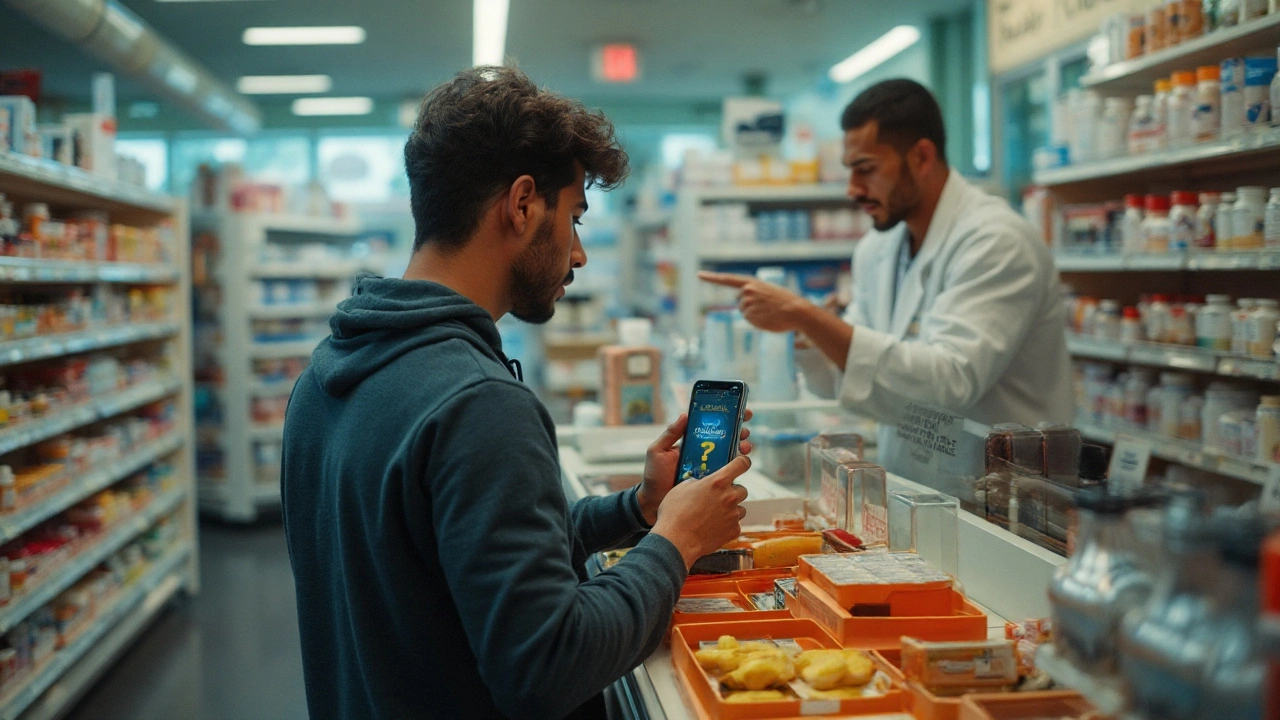
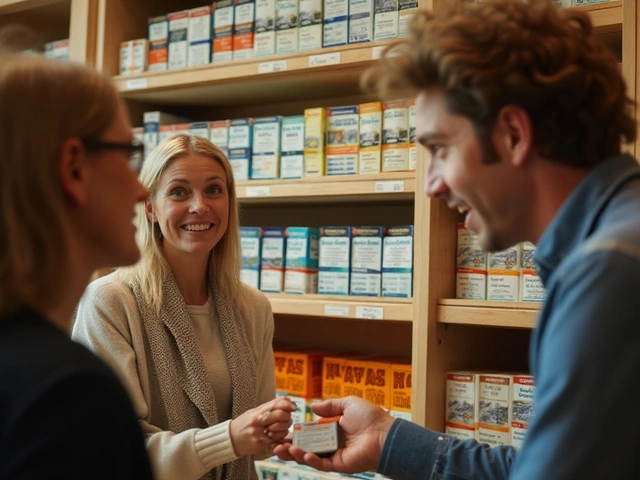
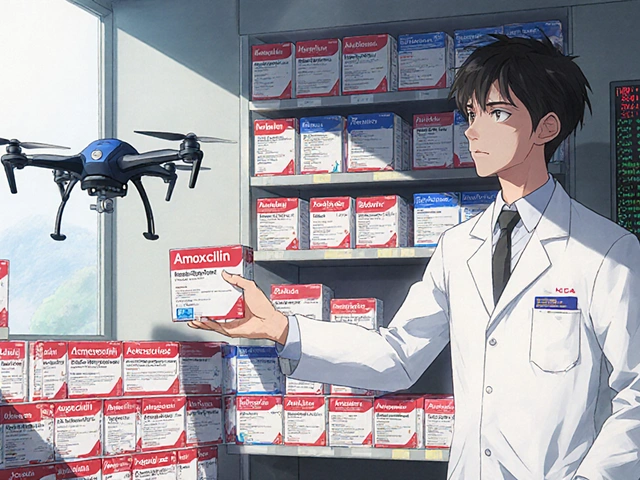
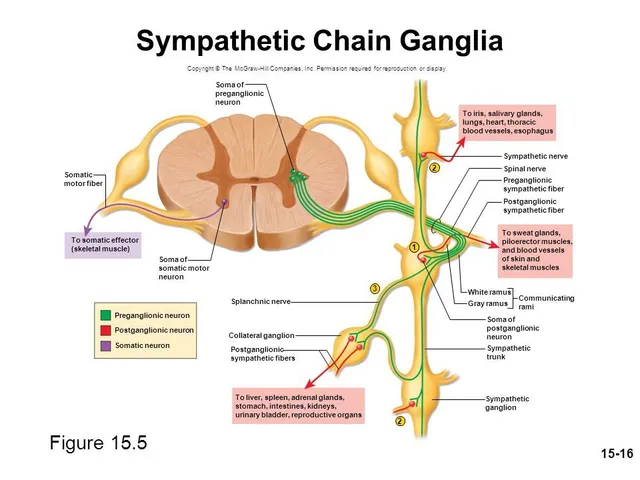
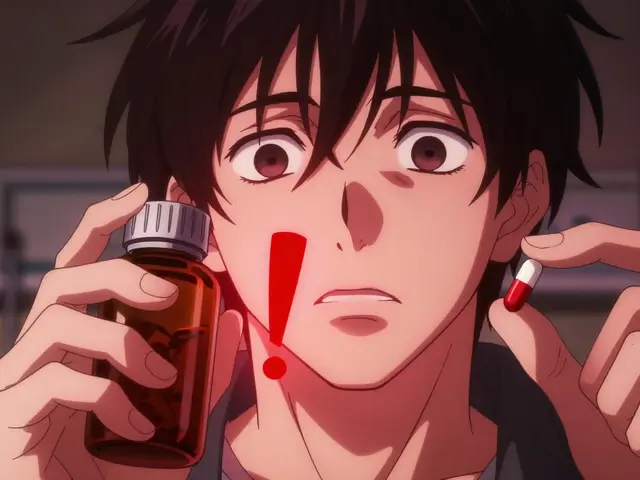
Valérie Siébert
September 7, 2025 AT 07:02Okay but like… procaine as a supplement?? 🤡 That’s like saying aspirin is a superfood because your cousin once took two for a headache and felt ‘vibes’. The FDA shut this down in the 80s and people are still buying it off shady Etsy shops labeled ‘for research only’?? Bro. Just sleep. Drink water. Eat protein. Stop chasing magic bullets.
Kaylee Crosby
September 9, 2025 AT 00:05Love this breakdown so much 💪 Seriously though - if you’re tired all the time start with sleep and ferritin. Most people don’t realize low iron isn’t always anemia. I had fatigue for years until my doctor checked ferritin - turned out I was at 12. Took iron for 3 months and now I’m running 5Ks. Procaine? Nah. Real fixes are boring but they work.
Adesokan Ayodeji
September 10, 2025 AT 11:49Man this is such a needed post because in Nigeria we got people selling ‘African anti-aging elixirs’ with procaine mixed in and claiming it’s from some Swiss lab. I told my uncle who’s 68 he’s wasting money - he said ‘but the YouTube video said it reversed gray hair!’ I just smiled and gave him a banana and told him to walk 20 minutes daily. No magic pills, just consistency. Your body ain’t a Tesla, it’s a bicycle - needs maintenance, not rocket fuel.
Karen Ryan
September 10, 2025 AT 12:26YES YES YES 🙌 I’ve been saying this for years! That Gerovital H3 stuff is a relic from the 70s and people keep reviving it like a zombie. I work in wellness and clients still ask me about it. I show them the FDA ruling and they’re shocked. Also - caffeine + L-theanine is life changing. I don’t even drink coffee anymore, just that combo. So smooth. No crash. No jitters. Just calm focus. 🌿☕
Lawrence Zawahri
September 11, 2025 AT 02:03THEY’RE HIDING THE TRUTH. The FDA banned procaine because it WORKS TOO WELL. They don’t want you to know that real energy comes from a drug that costs pennies, not from Big Pharma’s $50/month ‘adaptogen’ scams. Gerovital H3 was a miracle - they destroyed it because it threatened their billion-dollar supplement racket. You think I’m crazy? Look at the timeline. 1982. Right after the oil crisis. Coincidence? I think not. 🕵️♂️
Benjamin Gundermann
September 11, 2025 AT 23:10Look I get it, the ‘science’ says procaine gets broken down in your gut - but have you ever stopped to think that maybe the body’s natural enzymes are just trying to protect you from something too powerful? Like… what if the reason it doesn’t work orally is because it’s TOO EFFECTIVE and the system shuts it down? Maybe the real answer is sublingual, or transdermal, or… I dunno… a government conspiracy? I mean, why else would they ban it? It’s not like they’re against all drugs - they’re just against the ones that actually help. 🤔
Rachelle Baxter
September 12, 2025 AT 18:52For the love of God, people. Procaine is a Class I controlled anesthetic in the U.S. Pharmacopeia. It is not a dietary supplement. Period. End of sentence. If you’re buying it online as a ‘wellness product,’ you’re either dangerously misinformed or willfully ignorant. The FDA ruling is public. The metabolites are documented. The allergic reactions are listed in every pharmacology textbook. This isn’t a debate. It’s basic medical literacy. Please stop.
Dirk Bradley
September 13, 2025 AT 23:57One must acknowledge the epistemological fallacy inherent in the contemporary wellness-industrial complex: the conflation of pharmacological intervention with nutritional supplementation. Procaine, as an ester-local anesthetic, possesses no nutritional profile, nor does it function as a cofactor, modulator, or bioactive nutrient. To classify it as such is not merely incorrect - it is an affront to the foundational principles of biochemistry and regulatory science. The market’s commodification of ignorance is, frankly, deplorable.
Emma Hanna
September 15, 2025 AT 05:47Okay, but let’s be real: if you’re considering procaine as a supplement… you’re probably already taking 17 different ‘natural’ energy boosters, drinking bulletproof coffee at 10 p.m., and sleeping 4 hours a night because you’re ‘busy.’ Stop trying to fix a lifestyle problem with a drug. Sleep. Eat. Move. Hydrate. Repeat. And for the love of all that is holy, stop Googling ‘anti-aging miracle cures’ at 2 a.m.
Patrick Goodall
September 16, 2025 AT 02:44They banned Gerovital because it was too cheap and too effective. The same people who told you statins were the only way to lower cholesterol now sell you $80 turmeric capsules. The system doesn’t want you healthy - it wants you dependent. Procaine works. They just don’t want you to know. I’ve been using it for 12 years. I feel 25 again. They tried to shut me down. I’m still here. 💪🔥
Manish Pandya
September 18, 2025 AT 01:55This is one of the clearest explanations I’ve ever read. I’m from India and we have so many fake ‘anti-aging’ clinics pushing GH3. People spend their life savings on it. I showed this to my aunt - she was about to buy a bottle. Now she’s scheduling her ferritin test. Thank you for the facts. No fluff. Just science.
liam coughlan
September 18, 2025 AT 20:53Just tried caffeine + L-theanine last week. 100mg + 200mg. Zero jitters. Felt like my brain finally stopped foggy. No procaine. Just coffee and a chill amino acid. Life changed.
Maeve Marley
September 18, 2025 AT 22:50Okay I’m gonna be real - I used to be the person buying this junk. I had a whole shelf of ‘energy elixirs’ from Eastern Europe. Then I got my blood work done and my ferritin was 8. I started iron supplements, slept 8 hours, and cut caffeine after noon. In 3 weeks, I had more energy than I had in years. I threw out all the procaine stuff and gave it to my cousin who still believes in ‘energy crystals.’ I’m not mad. I just feel bad for her. You don’t need magic. You need a doctor, a calendar, and a decent mattress. 🛌
James Gonzales-Meisler
September 20, 2025 AT 02:47TL;DR: No.
Navin Kumar Ramalingam
September 21, 2025 AT 15:00Interesting how the post casually dismisses Gerovital H3 as ‘outdated.’ But what if the reason it disappeared wasn’t because it didn’t work - but because it was too disruptive to the pharmaceutical model? The fact that it contained procaine, PABA, and potassium isn’t a flaw - it’s a holistic approach. Modern medicine loves single-target drugs. But biology doesn’t work that way. Maybe the real problem isn’t procaine - it’s reductionist science.